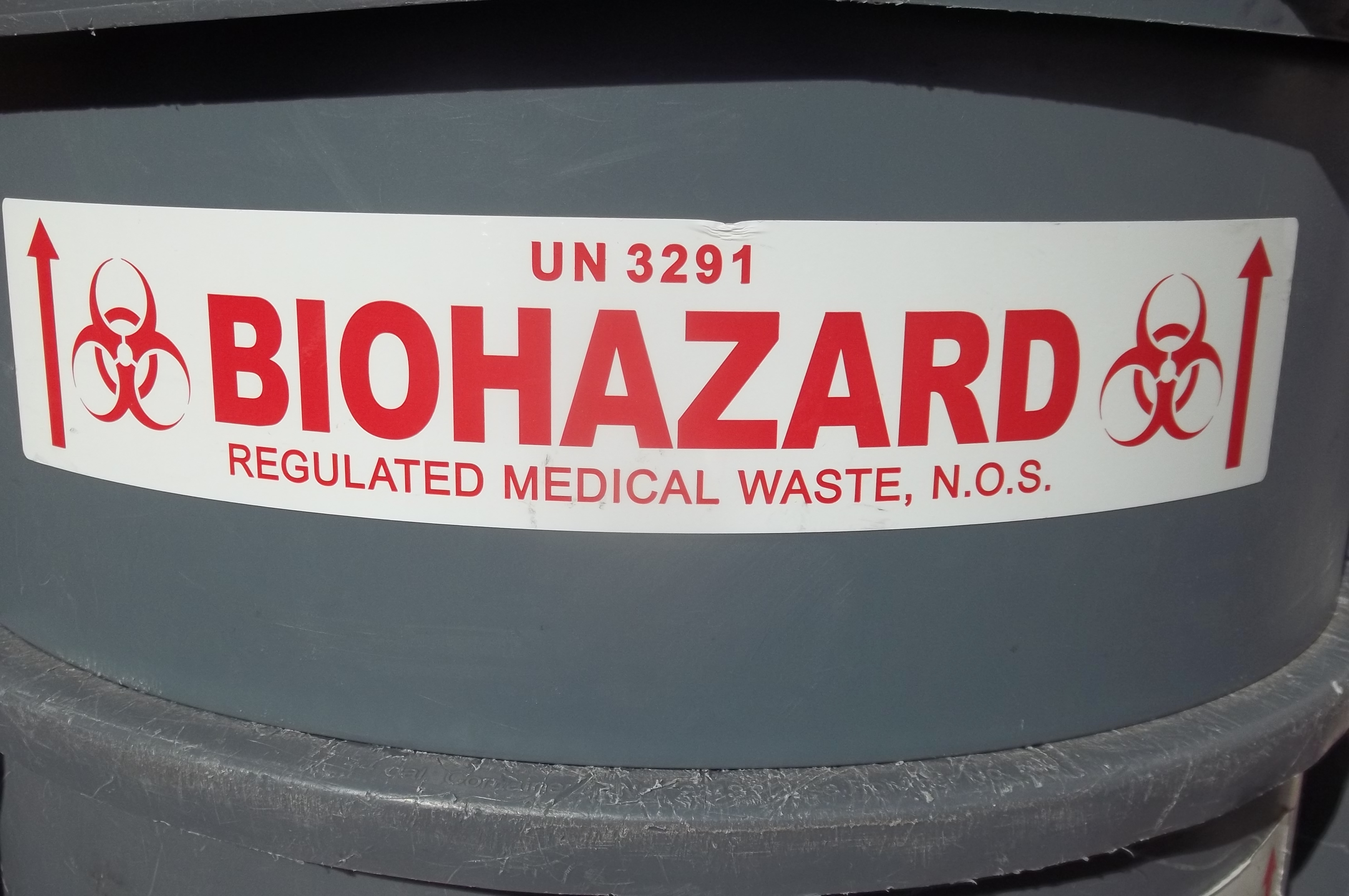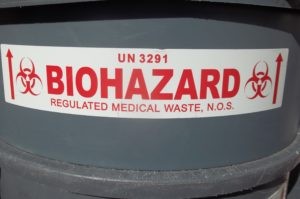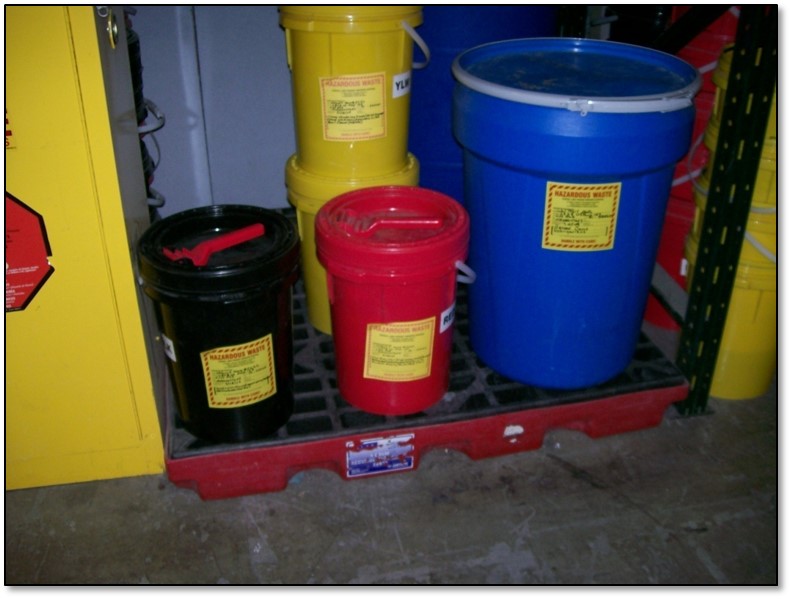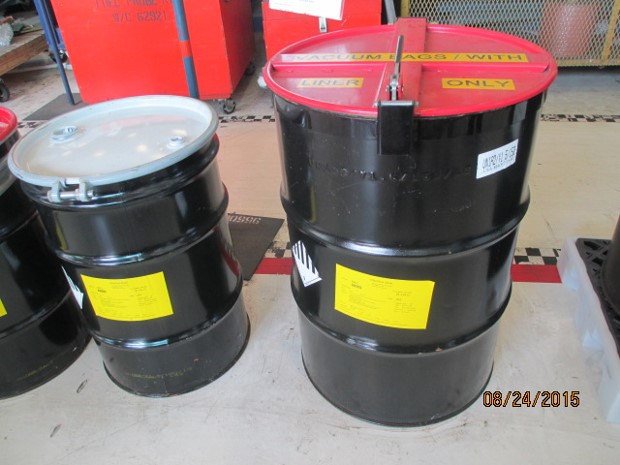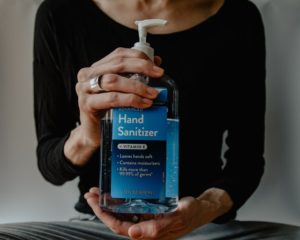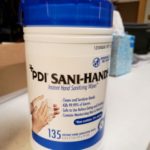No. Wastes such as used medical equipment or personal protective equipment contaminated with the coronavirus are not regulated as a hazardous waste under USEPA regulations.
Regulations codified under the Resource Conservation and Recovery Act (RCRA) identify solid waste as a any discarded material not excluded by regulation. The used medical equipment, personal protective equipment (PPE), or COVID-19 test kits generated in connection with the diagnosis, treatment, or immunization of persons infected – or suspected of being infected – with SARS-CoV-2 (the virus that causes COVID-19) will be a solid waste.
Like this article? Subscribe to my Monthly Newsletter No marketing emails! |
To meet the criteria of a hazardous waste, a solid waste must be one – or both – of the following according to USEPA regulations:
- Identified on one of the lists of hazardous waste at 40 CFR 261, subpart D; i.e., a listed hazardous waste.
- Display one of the characteristics of a hazardous waste identified at 261, subpart C; i.e., a characteristic hazardous waste.
Lists of hazardous waste:
- F001-F039 – Hazardous waste from non-specific sources.
- K001-K181 – Hazardous waste from specific sources.
- U001-U411 – Discarded commercial chemical products, off-specification species, container residues, and spill residues thereof (toxic).
- P001-P205 – Discarded commercial chemical products, off-specification species, container residues, and spill residues thereof (acutely toxic).
Characteristics of hazardous waste:
- D001 – Characteristic of Ignitability. Liquid, solid, or gas that can self-ignite and burn vigorously or is capable of ignition at a temperature below a regulatory threshold. It also includes oxidizers.
- D002 – Characteristic of Corrosivity. Liquid of low (acid) or high (alkaline) pH or liquid capable of corroding steel.
- D003 – Characteristic of Reactivity. Includes: waste that is unstable and readily undergoes violent change without detonation; waste that reacts violently with water; waste that emits toxic levels of cyanide or sulfide gas, waste that is capable of detonation.
- D004-D043 – Characteristic of Toxicity. Waste that contains an identified toxin that is leachable from the waste and is above a regulatory threshold.
Contact me with any questions you may have about the generation, identification, management, and disposal of hazardous waste Daniels Training Services, Inc. 815.821.1550 |
USEPA regulations do not define wastes as hazardous due to their infectious nature, including those contaminated by the novel coronavirus which causes COVID-19. It is up to the generator of the waste to complete the hazardous waste determination. However, I can, with some confidence, write that it is unlikely a solid waste contaminated with SARS-CoV-2 will either be a listed hazardous waste or display a characteristic of a hazardous waste.
Non-hazardous solid waste – including waste contaminated with SARS-CoV-2 – is subject to state regulatory programs. This includes states that lack RCRA authorization, e.g., Iowa, Alaska, and Puerto Rico. State regulations for the management of medical waste vary between the states. For example, not all states refer to this waste as medical waste, but I will for this article. This website is a great place to start to determine the regulations of your state for the management of medical waste.
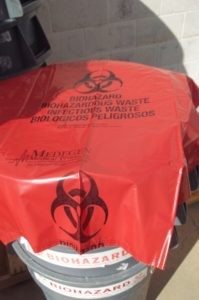
The Centers for Disease Control and Prevention (CDC) has helpful guidance for medical waste generated by healthcare facilities:
Medical waste (trash) coming from healthcare facilities treating COVID-2019 patients is no different than waste coming from facilities without COVID-19 patients. CDC’s guidance states that management of laundry, food service utensils, and medical waste should be performed in accordance with routine procedures. There is no evidence to suggest that facility waste needs any additional disinfection.
More guidance about environmental infection control is available in section 7 of CDC’s Interim Infection Prevention and Control Recommendations for Patients with Confirmed COVID-19 or Persons Under Investigation for COVID-19 in Healthcare Settings.
If you are a healthcare provider, medical facility, hospital, community-based testing site, or some other commercial or government facility generating a waste potentially contaminated with the SARS-CoV-2 virus, you should do the following regarding that waste:
- Conduct a documented hazardous waste determination.
- If a hazardous waste (unlikely), manage it according to USEPA and state regulations as a hazardous waste. Be sure to inform the transporter and designated facility it may be contaminated with the coronavirus.
- If not a hazardous waste, research your state regulations to determine your cradle-to-grave responsibility for its on-site and off-site management as a medical waste.
- Follow CDC and OSHA guidelines to ensure worker protection.
- Comply with USDOT/PHMSA regulations for its off-site transportation as a Division 6.2 Infectious Substance.
- Keep records of all activities.
- Be safe.
Daniels Training Services, Inc. 815.821.1550 |
USEPA and most states do not regulate the wastes generated by a homeowner. Even California does not currently regulate home-generated medical waste, with the exception of sharps (i.e., needles). Therefore, household waste that has come in contact with someone who has COVID-19 should be managed with prudence but is not subject to regulation. This fact sheet from the Illinois EPA contains information helpful to any homeowner for management of this waste and related items.

